

TO ALL FARMERS, FOR ALL FARMERS





DEPUTY PRIME Minister and Foreign Minister Winston Peters has sought to silence critics who insist that should be responding hard and publicly to US President Donald Trump’s tariff policy.
In an exclusive interview with Rural News, Peters pointed out that “careful and highly skillful tip-toe diplomacy” is what’s required in the present sensitive environment. He says this is a time when diplomats and foreign ministers need to be super aware, sensitive and alert and hold their counsel.
“It’s like walking on glass and there is no place for anyone to make any of the careless mistakes they made five or ten years ago,” he told Rural News.
To critics of the US in particular, Peters trots out some facts which he says back up his very measured approach to the Trump administrations controversial policies.
He says if people examined the trade figures for the last 12 months, they would be extraordinarily grateful for the US as some of the commodities we sell them have gone up by 33%. He says if you take the currency rate and everything else, we are on to an absolute winner.
“So how about acknowledging the great part about it and not wanting as someone who has comes off a farm asking for rain on a fine day and wishing there was sun on a rainy day. Be thankful about what’s going on and just remember when the dust settles, it may be possible that we will be in a much better situation than you have

even thought,” he says.
Peters says it’s time to stop listening to and believing all the alarmist messages.
He says a key focus for him as Minister of Foreign Affairs has been establishing personal contacts in many of the key people in the countries that NZ deals with.
He says in the previous Labour government’s term, foreign ministers simply didn’t travel and that happened long after covid. He says the only way to make progress diplomatically is have
personal contact, get them to trust you and your country, and you to be able to trust them too.
“When we (the coalition) came into office in 2023, we had to get on the road hard and quickly and make up the ground that had been lost, and yes, it has been exhausting, but absolutely necessary,” he says.
Peters adds that it’s not only about just meeting people, but also the preparation for those meetings. He says it’s important to make sure they know exactly what your position is on a given
issue – not what they might think it is. He says a critical part of diplomatic meetings is to get a clear and accurate understanding where both sides are coming from and, in our case, how can we help you.
He points to India, the world’s largest producer of milk. New Zealand is negotiating a free trade deal with the country.
“In the case of India for example, our message to them is you don’t want a bar of NZ agriculture because you have got all these cows, and we

have got cows as well. But you need to increase your milk production by 35% over the next 30 years and you cannot do that with the animals you have now. But we can help you with better animals get to where you want to, and we will be a partner in you achieving your objectives,” he says.
Peters says as well as meeting fellow politicians, NZ needs to get out into the rural areas of India and talk to people who are directly involved and get them to see the advantages in knocking down trade barriers.
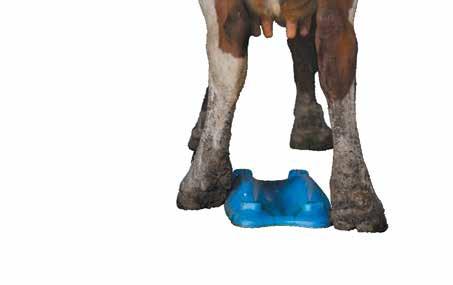
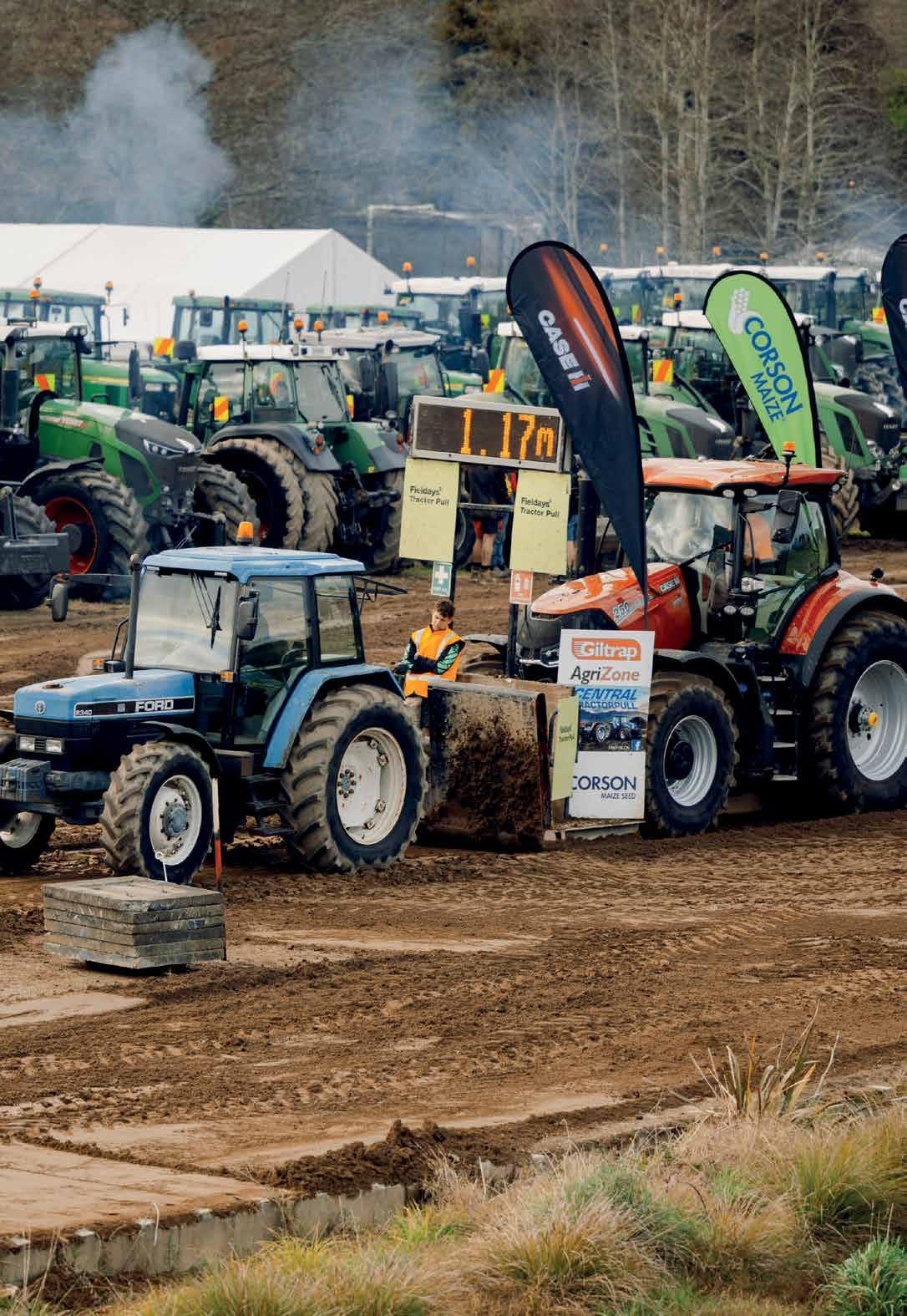


HEAD OFFICE
Lower Ground Floor, 29 Northcroft Street, Takapuna, Auckland 0622
Phone: 09-307 0399
Fax: 09-307 0122
POSTAL ADDRESS
PO Box 331100, Takapuna, Auckland 0740
Published by: Rural News Group
Printed by: Inkwise NZ Ltd
CONTACTS
Editorial: editor@ruralnews.co.nz
Advertising material: davef@ruralnews.co.nz
Rural News online: www.ruralnews.co.nz
Subscriptions: subsrndn@ruralnews.co.nz
A DETERIORATION in the quality of New Zealand’s wool clip is a problem for manufacturers and exporters, says Associate Agriculture Minister Mark Patterson.
Speaking at the recent NZ Wool Classers Association professional development day at Lincoln, Patterson said the wool industry has the chance for one of great turnarounds in New Zealand agricultural commodities, but quality assurance was critical.
“When I’m going around the manufacturers, what I’m hearing quite a bit is the deterioration of the clip is impacting their processes.”
He had also heard the same complaint from the Chinese delegation at an international wool conference in Adelaide last year.
“I’m not pointing my finger at the people in this room. What’s happened here is that farmers have stopped breeding for wool. They’ve stopped putting the resource into the sheds and trying to just cut costs to stay viable.
“So, as we start to see the wool price turn - and it has turned and it will go much higher, I’m hoping or absolutely believe that it can - that attention and focus on detail and quality in the sheds is going to be a key part of that turnaround.”
Patterson said that Canterbury Spinners in Oamaru (a supplier of woollen yarns to major carpet manufacturers) recently told him of the impact on their efficiency when they must frequently stop and repair the machines.
“That’s really disruptive, compared to their synthetic lines that they can run 24 hours a day, seven days a week, without stopping because they’re just totally consistent.
“So that’s the competition. We

NZ WOOL Classers Association chair Tracy Paterson said the amazing qualities of wool have been known “through eons”.
“But it’s about making sure that we maintain the quality and from the wool classers’ side of things that’s important to what we do.
“So, these industry days for us are really important about education and then also bringing everybody up at the same time, and giving people industry oversight, the whole lot.”
have been disrupted badly by synthetics. We’re fighting back but part of that fightback is doing our job as farmers, as shearing contractors, wool classers and that sort of thing.”
Patterson said he had been “one of those really cynical farmers that didn’t really see too much of a future for the wool industry” and it seemed to be in a downward spiral.
However, there was now a big swing back to natural fibres and he was now very confident of a big turnaround.
Paterson said the industry days, usually one each in the North and South Islands, covered different aspects each year.
“When you come to an industry day, you’re going to have new things at you, you’re going to learn something.”
Paterson said the drop in sheep numbers across New Zealand was “a bit of a shame” but the likes of New Zealand Merino and PGG Wrightson were doing their damnedest to build new markets.
More than 100 registered for the event, which included practical workshops, speakers, and the association’s AGM. Attendees included classers, students, growers, shearers and others in the wool trade.
Patterson told them that their end of the supply chain was “absolutely critical”.
Patterson said the message needs to go out from the attendees to the farmers to focus on quality.
“I think we’ll see quite quickly that
there will be quite a premium start to emerge between the better prepared wools and the not so well.”
The message was actually about the viability of hill country sheep and beef farming, and to turn that around we need to turn around their profitability, particularly through getting a better return for wool, he said.
“We don’t want to see New Zealand turn into a massive pine plantation.”
Introduced to the event as “the Minister of Wool,” Patterson was applauded for the Government’s recent announcement that government agencies must now use wool fibres and products in construction and fitout of new and refurbished buildings.
We cannot expound the virtues of wool if we’re not prepared to use it ourselves, he said.
However, it was not just selling more carpet or more insulation that would turn the industry around, but innovation in uses such as medicinal, sanitary, filtration and acoustics.
Patterson said acoustics manufacturer Autex – a major sponsor of the NZ Warriors – have launched a woollen product after four years development.

USE OF agricultural
drones by contractors in New Zealand is soaring.
The NZ Agricultural Drone Association estimates that there are about 160 large agricultural spray drones operating in the country.
Association president Craig Simpson told Rural News that over the past year, they’ve seen a real shift in momentum.
“Up until recently, there were around 80 large agricultural spray drones in operation across the country. But this year alone, that number has easily doubled—and it’s still climbing,” he says.
Simpson attributes this to the technology “hitting a sweet spot”.
“A few years ago, drones were limited to carrying 20-litre tanks. Now we’re seeing models that can carry up to 80
litres with much longer flight times, which makes them a genuinely viable alternative to traditional ground or air equipment for many jobs,” he says.
Increased visibility is also driving growth.
Simpson says that once farmers or contractors see an ag drone in action and how fast and precise they are it makes sense.
“They can immediately see where it fits into their operation, and the demand tends to grow from there.
“What’s also interesting is that we’re starting to see ag-drones being used in ways we hadn’t initially expected. As people get more familiar with the tech, they’re finding creative and practical applications we hadn’t planned for, from targeted cover crop seeding to spraying in areas too steep or fragile for tractors. The more they’re used, the more use cases seem to

Simpson’s company Aerolab is the largest supplier of commercial agricultural drones in New Zealand. Founded five years ago, the company has seen exponential growth.
“Every year we’ve doubled in size, and this
year we’ve already surpassed last year’s sales— and we’re only partway through.
“We’re proud to say we’re now the largest supplier of commercial agricultural drones in New Zealand.
“We offer the widest range of models in the
country, working with five leading manufacturers and supplying nine different drone platforms, including well-known names like DJI and TopXGun.
“Where we’ve seen the biggest growth is in supporting new ag drone users as they navigate
PETER BURKE peterb@ruralnews.co.nz
DEPUTY PRIME Minister Winston
Peters often describes NZ as a small and isolated nation situated ‘just north of the penguins’ but says in terms of global affairs, NZ and other small nations should be judged on the quality of their arguments and not the size of their military.
He has talked about the shift from rules-based trade to where the size and power of a nation override the
rules-based system. Over many years, NZ has been recognised as a nation that supports, and needs for its survival, a rules-based trading system.
In recent years NZ played a pivotal role in the establishment of the Comprehensive and Progressive Agreement for Trans-Pacific Partnership (CPTPP) – a trade deal between 12 Asia Pacific economies including Australia, Canada, Japan, Malaysia, NZ, Singapore, and Vietnam.
Peters says while negotiating the arrangement, NZ insisted on and got
the significant words “comprehensive and progressive” to be included in the title of the agreement to give it more weight.
Reflecting on the evolution of the NZ economy over the years, Peters expresses disappointment. He says that countries such as Ireland and Australia have got the jump on us over the years. He says in 1981 when in Ireland, he saw a dramatic change in its development.
“In many ways, we have left ourselves behind. If we had been as

the regulatory process of becoming certified pilots. There’s a rigorous pathway involved, from training to certification and ongoing compliance, and we’ve built a system that helps our customers through every step. It’s not just about selling the drone—it’s about making
clever as Ireland was then, we would be in a much better position than we are today,” he told Rural News
As Foreign Minister, Peters seems to spend as much time in an aeroplane as he does in his office. When Rural News pointed out his age – 80 – Peters laughed and pointed out he learned at an early age how to burn the candle at both ends.
“I was brought up on a farm and I had to milk the cows before I went to school and when I got home in the evening I had to milk them before I
sure they’re fully set up to operate safely, legally, and with confidence.”
A lot of agricultural contractors are adding drones to their service offering because they fill a useful gap—right between ground-based machinery and traditional aircraft.
When conditions are too wet for a tractor or too steep for a ground rig, but the job’s too small or awkward for a plane, that’s where a drone really shines. It can get in and do the work quickly, safely, and with incredible precision, says Simpson.
“And in many cases, the drone doesn’t just fill the gap—it does the job better. Less soil compaction, more targeted application, lower chemical use, and reduced drift. It’s a smart tool for modern land management, and the flexibility it offers is changing how contractors think about their entire operation.”
did my homework, and that hard work in my early life has helped me deal with the hard work and long hours that I do as a politician,” he says. Peters also muses that older people should be encouraged to stay working, because they know what they are doing and don’t mind working long hours.
“For us being five minutes early for work is being on time and being on time is late,” he says.

margarine and vegetable oils to UHT cream, butter and cheese.”
CONSUMERS AROUND the world are willing to pay more for products containing dairy and this is driving demand for butter and cream, says Fonterra.
The co-operative’s president - global ingredients, Richard Allen says its bakery customers are switching from plantbased ingredients to dairy fats.
“Consumers in China and other parts of the world are seeing dairy ingredients as healthy and more premium and are willing to pay more for products containing dairy,” Allen told Rural News
“This is driving demand for our dairy products, including butter, as our bakeries customers to look for ways to switch from plant-based ingredients such as non-dairy cream,
His comments came as butter prices jumped another 3.8% on the last Global Dairy Trade (GDT) auction, hitting a record US$7,992/tonne. Butter prices have risen in the last 10 consecutive GDT auctions, staying above the US$7,000/t mark since January this year. In the last five years butter prices have broken the US$7,000 mark only twice – in March 2022 and in June last year.
Fonterra produces butter at Whareroa, Clandeboye, Te Rapa and several other sites. This season, butter supply was impacted by the drought in the North Island.
“A period of drought in the North Island has reduced butter supply which was already tight with the end of the season approaching,” says Allen.
“However, we have
GROUNDSWELL NZ is ramping up its ‘Quit Paris’ campaign.
The farmer lobby group plans to roll out a series of signboards across the country, arguing for the end of New Zealand’s involvement in the Paris Agreement on Climate Change. New Zealand signed onto the agreement in 2016 and it took effect in 2020.
Subsequently, it has proven controversial with Act party leader David Seymour floating the idea of pulling out of the agreement in February following the release of the Government’s National Determined Contribution (NDC).
The NDC, which covers all sectors and greenhouse gases, commits New Zealand to reducing its emissions by 51% to 55% below 2005 levels by 2035. The previous NDC was for a 50% cut by 2030.
Now Groundswell is asking members with a fence, paddock or building facing a busy road to get in touch and host a 2.4m by 1.2m corflute sign on their property until the next election.
Groundswell says it will provide the sign, however it will need to be fixed to a durable backing to last.
“Our immediate priority is finding sites on the roads leading into the Fieldays event, but this is still a nationwide campaign,” the group wrote in a message to members.
“The Paris Agreement was a bad deal from the start, punishing New Zealand for already being emissions efficient and pushing our politicians to promise impossible targets,” they say. – Jessica Marhsall
still been able to flex our mix to increase skim milk powder (SMP), protein streams that support butter production which is up on last season.”
NZX dairy analyst Rosalind Crickett says butter volume restrictions have been a continuing theme on last year, particularly in the short
term. She says demand outpacing supply has caused the series of new pricing records the product has been setting.

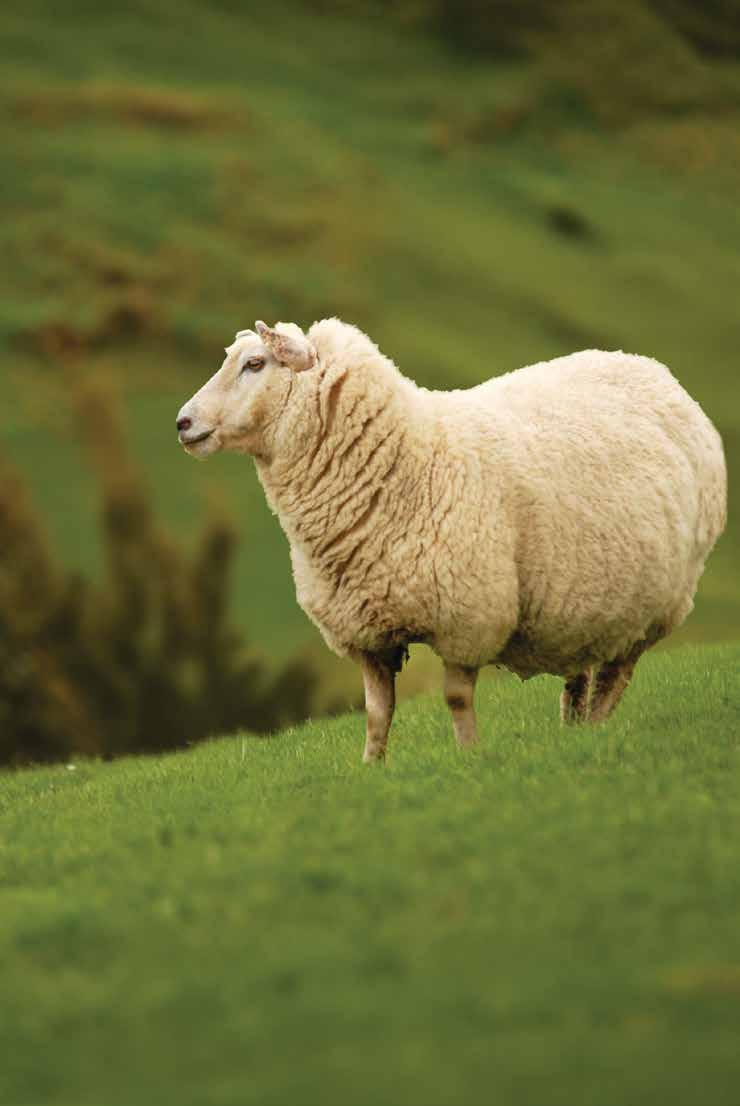
Protect ewes and lambs against the key clostridial diseases. New Zealand trial work showed vaccination with Ultravac® 5in1 reduced lamb deaths from tailing to pre-lamb by 23%1 . Choose Ultravac, the proven performer in the paddock.
Find out more at sheepsolutions.co.nz or have a conversation with your vet today.




THE PRIMARY sector is welcoming the appointment of Dr John Roche as the Prime Minister’s new chief science advisor.
Roche is Ministry for Primary Industries (MPI) chief science advisor and will retain that role in addition to taking up his new position, which is seen as a ‘part-time’ role.
Roche will also be the deputy chair of the newly appointed Science and Technology Advisory Council which will be headed by Science Minister Shane Reti.
The other members are Sir Peter Gluckman,
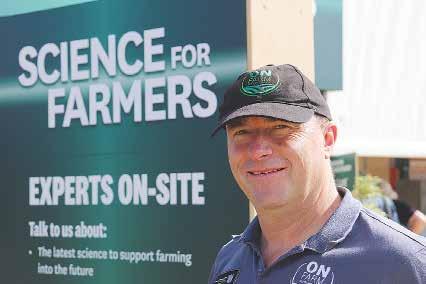






Craig Piggot the founder of the ‘Halter’, Fonterra executive Komal MistryMehta Genesis Energy chief executive, Malcolm Johns, and engineer Merryn Tawhai from the Auckland Bioengineering Institute.
Prime Minister Christopher Luxon says while NZ has world-class scientists in our universities and research institutes, they are working in a system held back by outdated settings.
He says to unlock the full potential of science and technology, there is a need for a sharper focus on commercialisation, better access to global investment, and clearer priorities at home.
Support for Roche has come from Lincoln Agritech chief executive Pro-
MAORI LAND FOR HORT Roche will also be the deputy chair of the newly appointed Science and Technology Advisory Council.
DR JOHN Roche is a respected agricultural scientist. He previously worked for DairyNZ as a principal scientist before joining MPI in 2018. He is an adjunct professor at the Auckland University School of Biological Sciences and has held science appointments in Ireland and Australia.
Born in County Kerry in Ireland, Roche obtained his doctorate in animal nutrition at the prestigious University College of Dublin, UCD. He also has a master’s degree in farm systems and pasture management.
In his role at MPI he led the task force to deal with M. bovis and more recently has headed up the Ministry’s On Farm Support’ (OFS) team and set up the Science For Farmers programme. Most of these successful ventures are due at least in part to his strong Irish connections, particularly the influence of Teagasc, the Irish Agricultural institute (former MAF in NZ).
The OFS initiative is designed to get MPI more involved at the grassroots level of farming and to better understand the needs of farmers and bring them to the notice of his colleagues and government. It’s likely Roche will have to give up the directorship of that team when he steps into his new role.
Roche was back home in Ireland when the announcement was made, but in a statement he says, “as someone who has dedicated their career to research and science it is a huge honour to be appointed to the role”.
He says he’s looking forward to working closely with members of the PM’s new Advisory Council and is confident its independent advice will ensure taxpayer-funded science and innovation delivers real outcomes.
fessor Travis Glare, who described his appointment as an excellent choice given his experience in public funding for research, and alignment with policy needs. He says it is pleasing to see these new appointments and the establishment of the Science and Technology Advisory Council as part of the revamp of the New Zealand science system.
“There is a strong need for strategic direction for research investment in this country and it is hoped that the committee are able to provide a balanced portfolio approach,” says Glare.
Glare says he hopes the advisory council helps promote the need for increased investment in research as a mechanism to increase the wealth and wellbeing of all New Zealanders.
While apparently supporting Roche’s appointment, the co-chair of the NZ Association of Scientists has taken a dig at the composition of the advisor panel. Dr Lucy Stewart claims there is a “very significant focus on the dairy industry”.
“While important to the country’s economy it is fair to say it does not, nor should it, make up half of our science and research capability and focus,” she says.
MORE MAORI land is being used for growing commercial fruit and vegetables, according to a new report commissioned by Horticulture New Zealand (HortNZ).
The Snapshot of Māori in horticulture 2024 research found the gross output from Māori horticulture during 2024 was $305 million, up from $220.5 million in 2019.
While horticulture currently comprises just over one per cent – 5,715 hectares – of Māori farmland, this is growing steadily.
The amount of Māori land in horticulture has increased by 50.4% since 2017 and now represents about seven per cent of total fruit and vegetables land in New Zealand.
Kate Scott, chief executive of HortNZ, says this figure is notable, given that overall, there has been a decline in the amount of land in horticulture.
“One of the key priorities in the Aotearoa Horticulture Action Plan is increasing Māori-owned land in high value horticulture, so it is heartening to see the data trending in this direction.
“While horticulture currently comprises a small proportion of Māori land use, Māori involvement in horticulture is diverse and expanding, from Māori individuals and businesses to iwi and their commercial arms.”
THE NEW Zealand/ European Union free trade agreement (FTA) is exceeding the expectations of both parties and more good things are in the pipeline.
It’s just a year since the FTA came into force and the occasion was marked by a function at the Beehive in Wellington, hosted by the EU ambassador to NZ, Lawrence Meredith and the Minister of Trade and Investment, Todd McClay. The function, which also doubled as Europe Day, was attended by diplomats, government officials and business people.
McClay told Rural News that the agreement has already seen a surge in exports to the EU - predominantly primary - to the value of about $1 billion. He says lamb, butter and kiwifruit are big winners, as is seafood. He says interestingly machinery exports to the EU are also up. He says the areas of growth are those that in the past faced restrictions and
limitations on quota. He adds that while not all the restrictions are gone, the freeing up of these is beneficial to NZ.
“The outcome of the FTA has exceeded my expectations. While I knew it would be good, this has been a very big jump,” he says.
McClay says the FTA is not just one way and there’s been a 17% increase in the services trade from Europe to NZ. He says the FTA has seen a rebalancing of NZ’s trade with the EU because we buy more from them than we sell to them.
He says the FTA has also seen political ties between the EU and NZ strengthen following visits to Europe by Christopher Luxon and Winston Peters.
He says the political relationship is important because we share the same ideals, we have a similar approach to the world and like the rulesbased approach. We also both stand up against repression, particularly the illegal invasion of Ukraine by Russia.
“So, there is a grow-
THE EU is looking forward to taking this relationship to the next level, says EU Ambassador to NZ Lawrence Meredith. To that end, he announced that the first ever EU/NZ business summit in Auckland in late October. He says the event, which will be hosted by Todd McClay, is to further boost trade between the two jurisdictions.
“We will be bringing top European corporates to talk about key issues such as the EU leading globally climate work, NZ globally leading rocket launching and aerospace space. A big topic will be infrastructure, and we are looking at how the EU can help NZ to deliver on its commitment to roads, rail, ports and ferries. It’s all about business,” he says.
Meredith says there are also some exciting research programmes being undertaken in NZ and funded by the EU. One of these he says is biodegradable sportswear being developed by Scion in Rotorua.
He says a lot has happened since the FTA came into force and it’s clearly delivering benefits for people both in the EU and NZ. He says the political ties between the pair are strong and in these troubled times this is very important.
Meredith says the EU is doing all it can to ensure there is free trade in the world and they are looking at how they can work more closely with the CPTTP group.
ing partnership and there are many more areas we might look at to work together,” he says.




A MASSEY University researcher and veterinary says it may be possible to reduce the percentage of ewes culled or that die each year on some New Zealand farms.
Dr Anne Ridler was one of a team of researchers from Massey, along with colleagues from Lincoln and the University of Hong Kong, involved in a detailed study of 34 sheep flocks in NZ. The study shows that between 25% and 35% of ewes are culled or die each year on the farms.
But Ridler says this

is an ‘average’ number and there are some farms where the losses are lower. As part of the study, tallies were collected at key times, culling ‘when and why’ was noted, as were natural deaths and animals that could not be accounted for. The study showed that two thirds of the deaths occurred between set-stocking and docking and the other third during the remainder of the year. Essentially most happen in the period of late pregnancy and lambing and includes incidents of ewes being cast and suffering from lambing trouble, metabolic dis-


eases and infections.
The farmers who participated in the study were required to collect and share their data on ewe culling and mortality and to be visited by researchers on two occasions during the 10-month trial. All told, a total of just over 155,000 sheep were present at the start of the trial.
In the study there was a correlation to scanning, says Anne Ridler, noting the higher the scanning percentage, the lower the ewe losses on a farm. The losses were slightly higher on hilly farms compared to those less hilly.
Most ewe culling is
justified, acceptable and needed to ensure that only productive ewes stay in the flock. But ewe deaths are potentially a big and costly problem for farmers, says Ridler.
“We know that if a ewe has a low body condition score, that animal is at a higher risk of
dying, especially around lambing. It seems that as ewes get older, low body condition score tends to be a greater risk factor.”
She says there may be ways of reducing some of the deaths by condition scoring ewes and managing the thin ones separately. Other options
include doing cast beats before lambing and potentially running regular lambing beats or taking other interventions during lambing. But she says in the case of the latter, the cost and benefits of these need to be carefully considered.
Overall, she says the
best place to start is to look at tally data across the year to work out when and why ewes are leaving the flock from culling and deaths. If needed, decisions can then be made about how to reduce those losses.
@rural_news
facebook.com/ruralnews
NOMINATIONS ARE open for three positions on Horticulture New Zealand (HortNZ) board.
Three director positions are available this year, following the retirement of Barry O’Neil and Hugh Ritchieboth having completed their maximum terms - and the decision by Kathryn de Bruin to step down.
“Horticulture is a crucial industry for New Zealand, and director elections give growers a real say in the direction of the industry good body,” says Bernadine Guilleux, chair of HortNZ.
“We’re encouraging growers to think about the candidates who will best reflect the diversity of the sectorfrom different crops and regions to varied backgrounds and perspectives.”
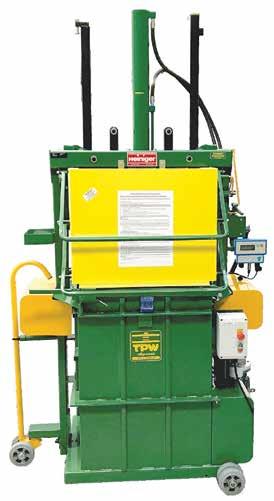
To be eligible, candidates must be active growers, or a director, shareholder, trustee or employee of an active grower.
Nominations close Monday 9 June.
RURALCO HAS donated $10,000 to the Mid Canterbury Rural Support Trust following a recent fundraising golf tournament.
The Ruralco Golf Classic at the Tinwald Golf Course, attended by over 100 players, was backed by attendees and sponsors, with all proceeds from player entries, on-course challenges, and raffles going to the Trust. These funds will help the Trust continue its important work providing free, confidential support and wellbeing services to farmers and rural communities across Mid Canterbury.
Ruralco CEO, Tony Aitken says the success of the Golf Classic reflects the co-op’s ongoing commitment to Mid Canterbury, strengthening community ties and backing local initiatives.
“We are incredibly grateful to everyone who took part, whether by playing, sponsoring, or donating. This event was about more than just a round of golf, it was a show of solidarity and support for the people at the heart of our rural community. We are especially proud that the funds raised will stay local and directly assist Mid Canterbury farmers and their families.”
DairyNZ subsidiary New Zealand Animal Evaluation (NZAEL) will update the genetic base used to calculate Breeding Worth (BW) next month.
This routine update will cause a drop of approximately $185 in BW across all cows, bulls, and herds but does not reflect any loss in genetic value or animal performance.
To assist with ranking within a population, it’s helpful to have a benchmark. In animal evaluation, this reference point is called ‘Base Cow’. A Base Cow change causes very minimal re-ranking among bulls, cows, herds or breeds. It simply shifts animals up or down depending on the genetic base that is chosen. Base Cow creates a yard stick to measure how much genetic progress is being made with each passing generation.
“New Zealand’s dairy herd continues to make meaningful genetic improvement. Each generation of heifers enters the herd with higher BW on average, than the previous generation, leading to higher protein, fat and greater efficiency. Updating the Base Cow ensures BW remains an important and accurate ranking tool, reflecting the performance of today’s dairy animals,” says Andrew Fear, NZAEL manager.
From 20 June, the BW of the average dairy animal will move from $241 to $56. This shift follows the introduction of an updated reference point, known as a Base Cow, which will now be based on 2015-born animals instead of the current 2005 cohort.
A SOUTHLANDER who created edible bale netting and rural heroes who made their mark advocating for pragmatic regulation and supporting stressed out farmers feature among Primary Industries NZ Awards (PINZ 2025) finalists.
The seventh annual awards are a highlight of the two-day PINZ Summit taking place at Te Pae Christchurch Convention Centre June 24 and 25.
Southland farmer
Grant Lightfoot is a finalist for the Food, Beverage and Fibre Producer Award after creating edible and biodegradable bale netting made from jute. It is an environment-friendly alternative to plastic netting, which isn’t recyclable and is often ingested by livestock.
The two other contenders in this category are Chia Sisters, who produce a gut health-supporting drink from a golden kiwifruit probiotic, kawakawa and haildamaged cherries, and New Image International, which exports health and beauty products to millions of people around the world.
“With tariff tit-fortat sparking disruption and uncertainty in export markets, more than ever New Zealand needs the primary sector to be innovative and enterprising,” Federated Farmers chief executive Terry Copeland says.
“The PINZ Awards celebrate our primary industry movers and shakers - the science and food production teams delivering a market edge for our exported goods,
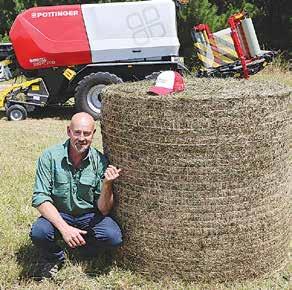
the leaders who go the extra mile.
“Their efforts inspire others and lift the employment prospects and standard of living for fellow Kiwis,” Copeland says.
Rural Hero finalists are (the late) Chris Allen, Neil Bateup and Ian Jury. Allen, who died in an
accident on his Ashburton farm last December, gave 14 years’ service as an elected Federated Farmers leader, including eight years on the national board.
A champion of rural causes, he steered a pragmatic and balanced approach on environment and water issues, earn-
ing respect not just from farmers but from those with opposing views.
Bateup helped set up the Waikato Hauraki Coromandel Rural Support Trust in 2004 and in 2017 became founding chair of the NZ RST. He has given countless hours supporting farmers and rural families facing hard times.
The third Rural Hero finalist is Ian Jury, an 85-year-old who for 20 years has been raising money for the Taranaki rescue helicopter by collecting batteries for recycling.
Four young women selected as Emerging Leader Award finalists illustrate the depth of talent being fostered in our primary industries.
Bridie Virbickas succeeded in her bid for one of the hotly-con-
tested DairyNZ associate director roles and followed that by joining waste recycling enterprise AgRecovery as a foundation trustee.
A contract milker who has overseen expansion of her employing farm from 270 to 850 cows, she put up her hand to be Federated Farmers Bay of Plenty sharefarmer chair to ensure a voice for the district’s young farmers is at the decision-making table. The role has seen her help in a number of cases where the relationship between a sharefarmer and farm owner had broken down.
Imogen Brankin has only been with Silver Fern Farms for three years, but the On-Farm Sustainability advisor has organised sixty ‘Know Your Number’ climate change workshops.
She was winner of the 2022 Polson Higgs and Young Farmers Innovation Competition, speaking on the topic “Can Farming Deliver a Sustainable Future for New Zealand”, and was part of a team of five who competed in the 2023 IFAMA Global Case Study Competition.
Newly appointed Onions NZ general manager Kazi Talaska has served on the Food and Fibre Youth Council, latterly as chair, and champions the Vegetable Industry Centre of Excellence to support the vegetable industry research pipeline.
Talaska worked with industry partners and growers to obtain $2 million in funding to set up a first-of-its-kind vegetable research farm, in Pukekohe.



FOREIGN POLICY is a real strength of Winston Peters and this is recognised by Ministry for Foreign Affairs and Trade (MFAT) officials who, so the story goes, wanted him in his present role because of his experience in that field.
At a time of unprecedented geopolitical upheaval and uncertainty, wise and politically savvy heads are needed, and NZ should be grateful they have the NZ First leader at the helm, supported by a team of talented MFAT staff.
His words that “we live in a time where tiptoe diplomacy, super awareness, sensitivity and people having the ability to hold their counsel” are on the money.
His call to stay calm and not indulge in quickfire tit-for-tat spats is correct.
Peters has been in politics for eons and knows that at some point the dust will settle and real negotiations will take place in a calm and measured way. And as he says, who knows, in the end we may be better off than we are now.
This doesn’t mean to say that he is pandering to anyone and in fact he continues to tell anyone he meets that NZ is absolutely committed to the orderly system of rules-based trade. He is right to message that while we may be a small country just north of the penguins, our voice and its sensible arguments should be listened to by the major powers and should not be dismissed because of our limited military capability.
Peters points out that most nations are small, hence his slogan “small states matter”.
The other valid point Peters makes is the need for NZ politicians to head overseas regularly to build personal relationships and trust with nations we want to align ourselves with.
This flurry of international travel by our politicians is a must in the present environment. As the marketing saying goes, ‘you can’t make a sale until you have a relationship’.
- Peter Burke
GOT SOMETHING on your mind about the latest issues affecting our farming industry? Put your pen to paper or your fingers to your keyboard, and let our readers know what you think. Contact us by either post or email. Don’t forget to put your name and address. Note: Letters may be edited.
post to: Letter to the Editor PO Box 331100 Takapuna , Auckland 0740. or Email: editor@ruralnews.co.nz
HEAD OFFICE POSTAL ADDRESS: PO Box 331100, Takapuna, Auckland 0740
Phone 09-307 0399
PUBLISHER: Brian Hight Ph 09 307 0399
GENERAL MANAGER: Adam Fricker Ph 021-842 226
EDITOR: Sudesh Kissun Ph 021-963 177 sudeshk@ruralnews.co.nz

GREENPEACE CLAIMS that the appointment of Dr John Roche as the PM’s Chief Science Advisor is handing the powers to polluters. Are they serious? If they bothered to read the press statement about Roche and looked up his CV, they would realise that he’s an highly respected scientist internationally. And, newsflash: working in the dairy industry is not code for ‘polluter’. Like your old mate, more and more people realise that the rubbish Greenpeace regularly spouts is the real pollution.
Greenpeace’s delusional missives about the environment leave the Hound wondering what will come next. NZ needs growth and agriculture is the way forward, with good science the way to deliver the environmental outcome everyone wants. People such as John Roche are key to this.

WHEN NEWS broke that Sir Bob Jones had died at age 85, the nightly news bulletins all led with the old footage of Sir Bob punching a reporter – the implication being that it was a terrible event in our history. Everyone this old mutt has spoken to didn’t think the sight of a nosey bloody reporter getting a bloody nose from the property tycoon was so bad, and they enjoyed seeing the footage again of an enraged Jones demonstrating what he thought of a news crew barging in on him while having a bit of a break fly fishing. Sir Bob’s irreverence in thumbing his nose at PC Wokeness and its High Priests will be sorely missed. There are very few left who can call a spade a spade with the panache that Sir Bob Jones did. R.I.P.
PRODUCTION: David Ferguson Ph 027 272 5372 davef@ruralnews.co.nz
Becky Williams Ph 021 100 4381 beckyw@ruralnews.co.nz
REPORTERS: Peter Burke Ph 021 224 2184 peterb@ruralnews.co.nz
Nigel Malthus Ph 021-164 4258
MACHINERY EDITOR: Mark Daniel Ph 021 906 723 markd@ruralnews.co.nz
IT’S GOOD news that Finance Minister Nicola Willis has slashed $1.1 billion from new spending, citing “a seismic global economic event” – Donald Trump’s trade tariffs – and unsustainable debt, but with the Government reportedly borrowing $500 million a week, interest costs now exceed the combined budgets of Police, Corrections, Justice and Defence. New spending will drop from $2.4b to $1.3b though, with Willis wary of the interest bill spiraling out of control. She criticised “extravagant” wage demands such as the 12% claim by striking senior doctors. Some commentators opined that savings are likely to come from stalled programmes and unfilled vacancies – not mass redundancies. Your old mate reckons the public service needs to wake up and realise the country’s coffers have been left in a right state and some spending demands are necessarily off the table for the foreseeable.
AUCKLAND SALES CONTACT: Stephen Pollard Ph 021 963 166 stephenp@ruralnews.co.nz
WAIKATO & WELLINGTON SALES
CONTACT: Lisa Wise Ph 027 369 9218 lisaw@ruralnews.co.nz
Want to share your opinion or gossip with the Hound? Send your emails to: hound@ruralnews.co.nz
IMAGINE IF the Hound had called the Minister of Finance the ‘c-word’ and accused her of “girl math”. The outrage from the keyboard warriors on LinkedIn and the left-wing apparatchiks in the woke media would be visible from space. However, when Stuff columnist Andrea Vance wrote those exact words about Nicola Willis, Stuff doubled down, backing the columnist to the hilt for the offensive outburst, and the microaggression police in the rest of the media did much the same. The column was also largely incorrect, reading more like a PSA press release. The hypocrisy and double standards from the defenders of the truth make the Green Party look like rank amateurs. NZME shareholders are at least trying to knock the Herald into shape but this old mutt doubts there’s not much hope for the publishers of the NZ Farmer – Stuff.
SOUTH ISLAND SALES CONTACT: Kaye Sutherland Ph 021 221 1994 kayes@ruralnews.co.nz
DIGITAL
Ph 021 0232 6446
I AM one of those who believe history has much to teach us.
Yes, there surely is great wisdom available for those who choose to listen. However, it will never just fall on us like apples from a tree. We will have to seek it out. And for those that do, a rich wealth of learning from ages past is waiting to be mined.
In a 1948 speech to the British House of Commons, Sir Winston Churchill said: “Those that fail to learn from history are doomed to repeat it.” Right, there is a great quote from Sir Winston, with wisdom that speaks to us from the past. Gold indeed!
With all the challenges happening around free speech, and controlling the public narrative, the accusation of

yet another ‘conspiracy theory’ has become so common it’s boring!
Well, what’s the story when yet another one of these so-called conspiracy theories later actually proves to be the truth. What then? Surely there will be a full apology… right? Like you’d expect from any decent human being.
I am aware of many such examples where exactly this has happened. The actual truth
has finally managed to surface despite multiple attempts to conceal it. Yet there has been no acknowledgement of that fact, let alone anything that might even resemble an apology! And very strangely, for some reason, the media doesn’t give it the coverage it merits. Strangely again, they seem to avoid it altogether.
Yes, history will teach us that rulers and authority figures – let’s call them governments – have conspired against their own people since governments began. No surprises there! History abounds with such examples and today is no exception.
When a ruler makes a statement: “It’s not who votes that counts, it’s who counts the votes”, it is glaringly obvi-

ous what’s going down. Nobody needs a serious dose of the ‘smarts’ to figure that one out. Free and fair elections? Yeah right!
That ruler, you’re wondering? None other than Joseph Stalin – hardly an icon of integrity! And
hardly a proponent for free speech!
One does not need to be a serious student of history to understand what happens when ‘we the people’ have no voice. It is never for our benefit. Just a casual observation will suffice. And there
is no need to go searching back to the dark ages either.
Take just the one example of the myriad available, the country of Romania. Ruled by the infamous Nicolae Ceausescu and his wife Elena for more than two decades, the people of Romania had no voice. Exercising freedom of speech would have got you killed. Clearly the nations ‘leaders’ conspired against their own people!
When the drapes were finally pulled back what a mess the nation was in! But their ‘leaders’ had lived in total luxury. And who could ever forget the plight of those ‘orphan’ children.
Any time any government is no longer accountable to its people, it is never a good thing.
Arguably America’s greatest ever President, George Washinton, made this timeless statement: “If freedom of speech is taken away, then dumb and silent we may be led, like sheep to the slaughter.” Wow, what a classic! The two work together. The voice of ‘we the people’ will need to be curtailed to assist authorities, should they conspire against their own people.
Yes, history shouts these lessons loud and clear, to those willing to listen. And of course, the greatest historical Person of all time is, without prejudice, ever ready to help those that call out to Him.
Keep well and God bless.
To contact Colin Millar email: farmerschaplain@ ruralnews.co.nz












AS THE maker of the TPW Woolpress celebrates its 50th anniversary, one Christchurch company is singing the praises of the machine, which has been a centrepiece of its operation for most of that time.
Yaldhurst Wools is a buyer, grader and exporter of fine and strong wools, which has been in operation on the
western outskirts of the city since it was founded by wool exporter John Betts in 1988.
It is now run by Betts’ son-in-law Ross McGuckin, whose own son Edward, 23, has now joined him in the business.
As a buyer of all wools, the Yaldhurst operation is all about grading and sorting wools for various end-uses. On an average day, they might bale 15-16

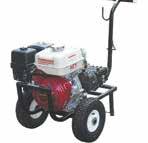
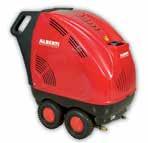


bales, and up to about 20 on a busy day.
“You get a lot of those crusty fleeces coming through the door,” says Ross.
“It takes a lot to class it out.”
Some of the wool comes in loose packed. While many shearing sheds now have their own TPW presses, Ross says some of it is not sorted too well and they will sort and re-bale it.

He has had a TPW press in operation for about 30 years, the current machine since 2013.




“So, it’s had 12-year service and we’ll probably do four or five thousand bales a year through it,” he says.
“It’s like anything we do: we service it every year. And it works a dream if you keep up to date with everything and you use it properly, you’re fine.”
Originally invented by the Perth company Theresia Perfection Welding, the TPW woolpress is said to have revolutionised wool handling in both Australia and New Zealand with its power-driven and largely automated operation.
Following the passing of its founder in 2000, the company was acquired by Heiniger which now markets them alongside other shearing equipment and other agriculture products.


ON THE state of the wool business, Ross McGuckin agrees it has fallen away a lot.
He says the “whole problem” is too many people wearing clothes made of artificial fibres.
“But our biggest fear with the industry is, everyone’s getting older. Who’s going to take on the mantle of doing it?”
With some “funny breeds” coming on, people need to know what those wools are good for, and how to class them.
McGuckin welcomes the recent Government decision to use wool in government offices for carpets and furnishing but questions whether it specifies that New Zealand wool is used.
However, a lucrative side of the Yaldhurst Wool business is its own line of top-quality woollen blankets bags and other items all made from 100% New Zealand wool but woven in Yorkshire.
Ross says they are very popular with overseas tourists.
To celebrate the 50th anniversary, Heiniger is currently offering a free 600kg capacity TPW Backease Hoist with each new TPW Xpress Woolpress sold (details at heiniger.co.nz).
The press features inbuilt electronic scales,
a unique sidepinning system and a variety of safety locks.
McGuckin’s press is a three-phase model which gives it a stronger and faster action.
They usually press to 180kg which they find easy to handle. Bales that
are too heavy or too light don’t stack very well.
On the day Rural News visits, Edward McGuckin is sorting fleeces into various bins for each class of wool. The wool will go into the press once there’s enough in a bin.
Picking out some
Corriedale lamb’s wool, short and about 23 or 24 microns, he explains that it would card well and be very suitable for scarves or gloves.
Another crossbred wool he classes as B or C-grade, being a little long in the fibre and probably coming from a 12 month-shear.
Shorter wools are selling for more now, he says.
“People like to shear at six months more than full now, because they find that the ewe does producing a lamb as well producing wool it. It’s really a personal preference for the farmer.”
Edward said he knew he’d go into the family business since he was young, having worked there in the holidays, and also working on family sheep and beef farms. McGuckin family members still farm on land they have held since 1915 at Glenmark in North Canterbury.
While some of McGuckin’s wool is sent to the South Island’s only wool scour at Timaru, much of it is sold greasy for export, and is shipped via a company on the other side of Christchurch which can compress three standard bales into 600kg bales.



A LONG-ACTING, controlled-release capsule designed to protect ewes from internal parasites during the lambing period is back on the market following a comprehensive reassessment.
Bionic Plus, distributed in New Zealand by Boehringer Ingelheim, will be available from veterinary clinics this month.
With approval from the Agricultural Compounds and Veterinary Medicines (ACVM) and New Zealand Food Safety (NZFS), Bionic Plus reenters the market following a comprehensive assessment including updated product specifications and label, both ensure consistent performance and informed use.
The return follows a voluntary withdrawal in 2022 preceding an industry-wide review of controlled release capsule technology by the ACVM. The product is made in Auckland by Argenta (the manufacturer) and distributed in New Zealand by Boehringer Ingelheim.
While Bionic Plus was not subject to a formal recall, the product was proactively removed from sale to enable further regulatory reassessment.
Dr Carl Eden, technical services veterinarian - ruminant at Boehringer Ingelheim, says the product’s timely return provides another option that will greatly benefit New Zealand sheep farmers ahead of the lambing season.
“The return of Bionic Plus gives sheep farmers a science-backed, reliable tool to help support at risk ewes during lambing by reducing parasite burdens through the early spring period, and therefore makes a valuable addition to parasite man-
agement programs.”
The product is designed to be used as part of an integrated parasite management strategy, in consultation with a veterinarian or animal health advisor. This strategy includes good nutrition and effective stock and pasture management practices, alongside the use of the product prior to lambing.
“We want to ensure that farmers are wellinformed and are prepared to use Bionic Plus appropriately.
“We know that farmers have been missing this product and are keen to have it back.
“To support the return we are also committed to equipping veterinarians and animal health advisors with the knowledge and tools to support farmers to make confident, best-practice decisions,” says Eden.
The product delivers an average of 100 days of internal parasite protection (range 85–115 days) via a sustained-release capsule. Its dual-active formulation of Abamectin (ML) and Albendazole (BZ) targets key parasite stages, helping reduce pasture contamination and protect lambs through early growth.
“ACVM’s approval confirms that Bionic Plus meets New Zealand’s highest standards for safety and efficacy,” adds Dr Eden.
Boehringer Ingelheim says it has been trusted by New Zealand farmers for over 50 years, with Bionic capsules protecting ewes for over 15 years. The product’s reintroduction comes at a time of increasing focus on resistance management and the need for sustainable solutions.

“There’s no silver bullet when it comes to parasite control, and not all long-acting tools are made equal. Used strategically, Bionic Plus can
help reduce reliance on frequent drenching and support long-term parasite management goals,” says Eden.
Farmers are advised to
speak with their veterinarian or animal health advisor to determine how the product might support their spring parasite control plan.

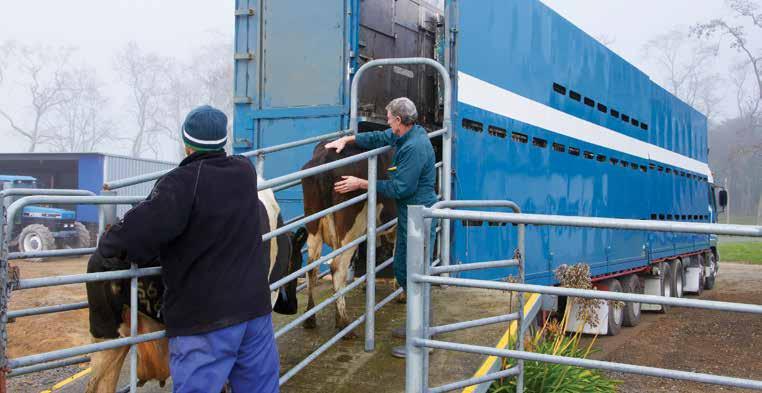
has announced new automation and efficiency updates on its 2026 model combine harvesters that provide more capabilities and boost productivity by up to 20%.
The updates work to create a smoother harvesting experience and enable less skilled operators to maximise crop quality and maintain harvest progress. Predictive Ground Speed Automation now supports edible beans and lentils, as well as the current crops of peas, wheat, barley, canola, soybean and corn.
In operation, cabmounted cameras sense individual weed patches
that are within the crop by detecting characteristics of plant shape and height. Depending on weed density and operator-defined sensitivity, the combine will reduce ground speed as it harvests through these areas to help reduce plugging and help prevent reel or rotor wrapping.
Furthermore, John Deere Operations Centre will automatically send harvest automation files, including crop data from planting, so that satellite views of Predictive Ground Speed Automation are available on all eligible harvesters.
Harvest Settings Automation sets concave clearance, fan speed, rotor speed, sieve clearance and chaff clearance, based on the harvester

model, crop type and geolocation. The system now includes an out-ofcrop setting that engages when the harvester is passing through areas already harvested, helping to reduce grain loss and maintain a cleaner tank sample in sparse areas of the field.
On the productivity front, the 2026 models incorporate updates to enhance productivity with less operator intervention, ensuring har-
vest quality is maintained regardless of operator experience.
AutoTrac Turn
Automation provides hands-free turning, by automatically raising and lowering the machine front as it crosses specific field triggers. This reduces the likelihood of missing a crop or starting a new pass in the wrong place, while also benefiting operators harvesting with poor visibility.
A new auto-unload
JUST WHEN you thought there wasn’t enough choices for a ute, Kia New Zealand has announced pricing for one of the most eagerly anticipated new model launches of 2025.
The marque’s first ute, the Kia Tasman, is scheduled to go on sale around the country in the coming months.
“Reaction to the Kia Tasman has been nothing short of phenomenal, it’s a statement making machine which combines rugged aesthetics with an impressive powertrain and functionality that can be counted on to get the job done,” said managing director of Kia New Zealand, Todd McDonald.
camera mounted to the auger, helps to evenly fill the grain cart, sensing the grain fill level inside the cart and sending in-line nudge commands to the tractor, reducing pressure on operators during unloading.
Users can gain more insights, using features such as Grain Sensing with HarvestLab 3000, that collects and records the percentages of crop moisture, protein, starch and oil content of wheat,
barley, canola, corn, soybeans, oats and rye crops.
Grain harvest weight sharing shows how much grain is in harvesters and chaser bins, so that the bins are in the right place at the right time.
Up at the header end of the machine, a new three-piece cam reel with dense pack fingers, features 32% more tines compared to previous flip-over reels, providing an efficient sweep from the knife to maximise

grain capture, particularly in lodged crops, or when harvesting challenging crops such as pulses.
Cab upgrades include a new instructor ‘stadium’ seat, that when not in use, sees the seat flip up and the back folded down to serve as a shelf.
A dual USB-C charging module has been installed in the new models, to charge batteries quickly for mobile devices.
“These updates will unlock the full potential of the John Deere combine harvester, whether it’s anticipating crop variability, fine-tuning weed detection sensing or improving the grain unloading experience,” says Royce Bell, John Deere ANZ, production and precision ag marketing manager.
and second-row shoulder room are considered, which is further enhanced in the case of X-Line and X-Pro as they feature a sliding and reclining second-row seats,” said McDonald.
Enhancements to the ownership package include the 5-year Kia Connect service, complemented with fully fledged over-the-air updates, all of which contribute to improved safety and implementation of future advancements in features and easy-tooperate user interface.
Early details speak to a custom tuned 2.2-litre diesel engine, producing 154kW of power and 440Nm of torque. In turn, this is paired with an eight-speed automatic transmission. Overseas testing of the new has been
“Tasman will launch with the double-cab well-side variant, a style which is proving to be popular amongst Kiwi buyers, whether it’s loaded up for work on the farm or the family as a weekend getaway.”

• High Flow
• Compact/Robust
• New Pilot Flow Filter
• Side/Bottom Mount
• Detach to Clean

extensive and rigorous, to deliver standard features such as an 800mm wading depth, a locking differential and low-range gearing, across all models in the line-up, whilst the flagship X-Pro delivers ground clearance of up to 252mm.
“Driver-interaction features of the
cabin such as buttons, switchgear and componentry have also been subject to rigorous testing, alongside its allround interior practicality, especially from a packaging perspective.
“Tasman offers best-in-segment second-row roominess when measures such as second-row headroom
Additional new model information and specification details relating to the Kia Tasman will be released in coming weeks. Pricing ranges from $52,690 for the TX 4WD to $79,690 for the X-Pro 4WD-all with ORC, with five variants in total. – Mark Daniel
@rural_news facebook.com/ruralnews
• For Water Storage Tanks
• Adjustable levels from 50mm-2.5m
• Minimises pump operation
•Available in 20/25/32/50mm
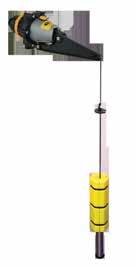
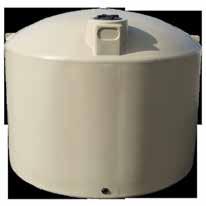

• Stainless steel bracket and Shaft
• Fits plastic and concrete tanks
• Rugged and long lasting
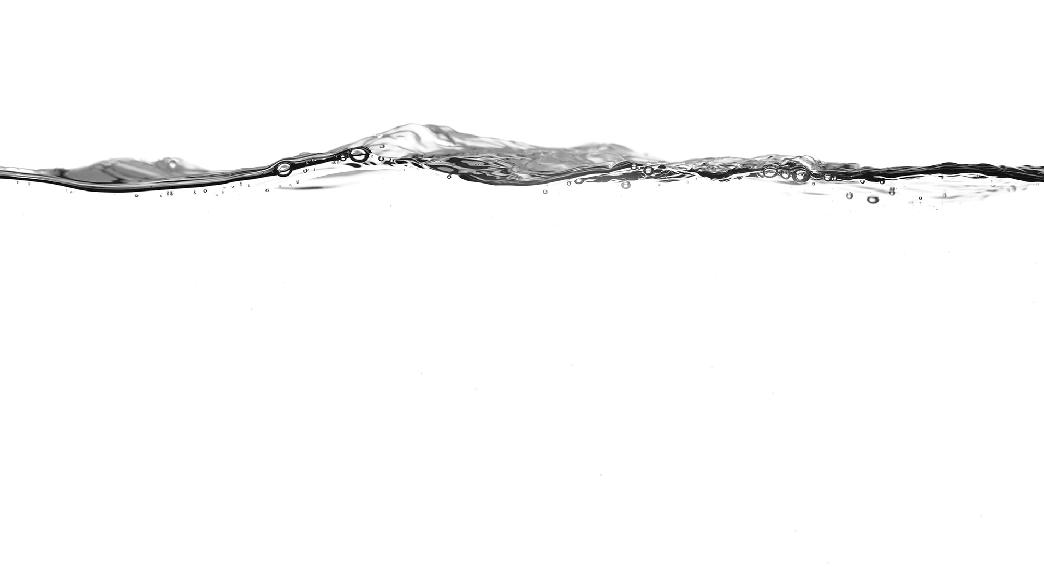



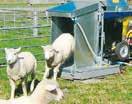






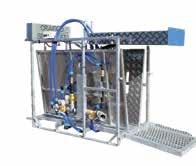
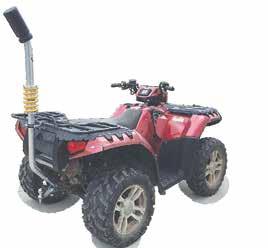




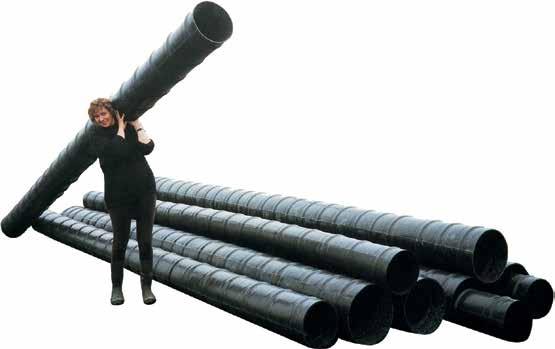






Leasing is made easy with Landini. Our fully maintained operating leases are available at highly competitive rates across the entire range of tractor models- from 60 to 310 horsepower. Your payments are fixed, easy to budget for, and tax deductible. Lease a brand new tractor for the term you want and hand in the keys when you’re done - easy as that.
Talk to your local Landini dealer today.

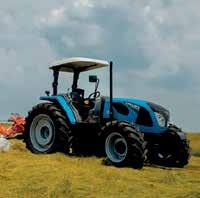


Landini. Passion for innovation.